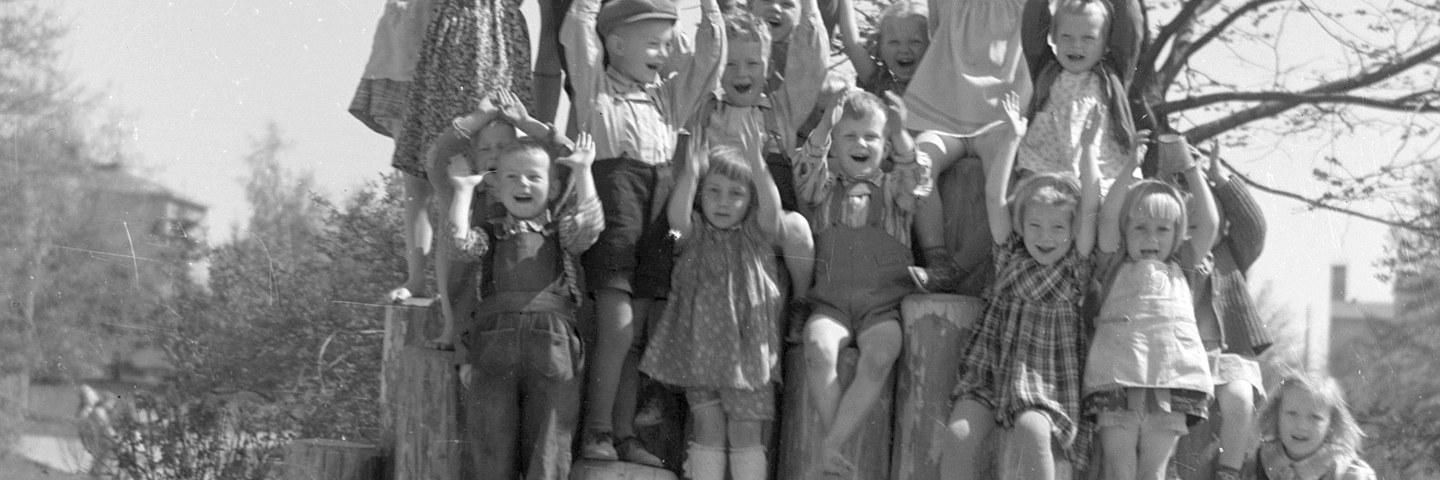
History
Knowing history helps us to understand the present, consider the future, and analyse different, varying worldviews. As a discipline, history is comprehensive and wide-ranging.
Our staff members have extensive expertise ranging from antiquity to modern history. In addition to our teaching staff, dozens of researchers work in the discipline of history. Many of them are affiliated with the Centre of Excellence in the History of Experiences or Trivium – Tampere Centre for Classical, Medieval, and Early Modern studies. You can read more about our research on the research page.
Our research and teaching are built around the social scientific approach, focusing on the history of everyday lives of people as well as global questions. Public outreach is at the core of the work done in the Degree Programme. The teaching in the programme is thematically structured with a focus on the longue durée perspective as well as on the comparative and conceptual study of the past. It highlights the relevance of historical research, a critical stance to the present, and absorption in historical thinking.
In the Degree Programme in History, you can earn the B.A. and M.A. degrees and continue to the doctoral school. As a minor subject, history offers an excellent opportunity to broaden one’s expertise. Most of the teaching is in Finnish, but the programme offers some of the courses also in English. Information about the courses in English can be found in the Teaching Schedules and Curricula Guides. International students who wish to discuss their studies in history at Tampere University, please contact Lecturer Tanja Vahtikari (tanja.vahtikari [at] tuni.fi (tanja[dot]vahtikari[at]tuni[dot]fi) / Pinni B3068).
The degree programme also hosts two separate minor subjects / study modules: Museology and Latin textual cultures and Latin language.
In order to change the world, you must understand it.
Research
Knowledge of the past is based on research. For decades, the history unit at Tampere University has been internationally renowned for its research. The unit has been very successful in gaining external research funding, including the Centre of Excellence in the History of Experiences, appointed and funded by the Academy of Finland for eight years. Before this, the programme hosted the Centre of Excellence in the History of Society (2012–2017) as well as dozens of other research projects funded by the Academy of Finland, foundations, companies, and organisations. An essential part of our research is also the education we provide in the Doctoral Programme in History.
The societal viewpoint is at the core of our research, which discusses questions that are of vital importance for modern people. History is researched because of the future. That is why it is important to have as diverse a picture as possible of the past as well as of the possibilities people had when the lived in different societies at different times. We research individuals, families, emotions, thinking, communities, and politics as well as such larger questions as health and the environment. Our incisive research focuses simultaneously on the everyday lives of ordinary people and on global questions. The local and the international intersect in the research done at Tampere University.
Research in our degree programme is conducted in the following projects and groups:
Research Projects
Teaching
Teaching in the Degree Programme in History ranges from antiquity to modern history and is thematically structured. Teaching is based on the research done at Tampere University, with a focus on the history of society.
Practising research is an essential way to learn historical thinking. Teaching begins by familiarising the students with the concepts of historical research and writing history and continues with scientific training on methodology issues. Doing research is practised particularly in the B.A. and M.A. thesis seminars.
After completing a degree in history, students can analyse and evaluate complex societal and cultural phenomena. They will be able to use their expertise in understanding the present and in considering future options. The Degree Programme educates experts to the private and public sectors with an ability to analyse societal developments over a long time span and to understand the big picture and connections between various phenomena.
The Degree Programme consists of B.A. and M.A. studies. B.A. studies take three years, after which the student continues to M.A. studies, which take two further years. After that, it is possible to apply for doctoral studies.
International students who wish to discuss their studies in history at Tampere University, please contact Lecturer Tanja Vahtikari (tanja.vahtikari [at] tuni.fi (tanja[dot]vahtikari[at]tuni[dot]fi) / Pinni B3068).
Societal impact and collaboration
We consider public outreach of vital importance. Discussing history has a central role in our research and teaching. Our students work at various sectors in society. The information our research produces about societal processes increases the understanding of the current state of society, challenges, and possibilities, and offers tools for influencing them.
Our researchers are active commentators in the media as well as experts and collaborators in various projects and institutions. Among our established collaborators are, for example, the National Archives of Finland, City of Tampere, Vapriikki Museum Centre, as well as various private foundations, companies, and other organisations.
Commissioned histories
We have a well-established and reliable track record of commissioned histories for companies, municipalities and other public and civic organisations. Please get in touch to discuss your needs further!
History Staff
Persons Responsible
Head of the History Degree Programme: Tanja Vahtikari
Head of Tutoring and Academic Support: Ulla Aatsinki
Head of the The History, Philosophy and Literary Studies Unit: Marjaana Niemi
Head of the Field of Study: Katariina Mustakallio
Head of the Doctoral Programme: Raisa Toivo
Research directors of the research centres
HEX - Centre of Excellence (CoE) in the History of Experiences: Pirjo Markkola
TRIVIUM - Tampere Centre for Classical, Medieval and Early Modern Studies: Ville Vuolanto





















